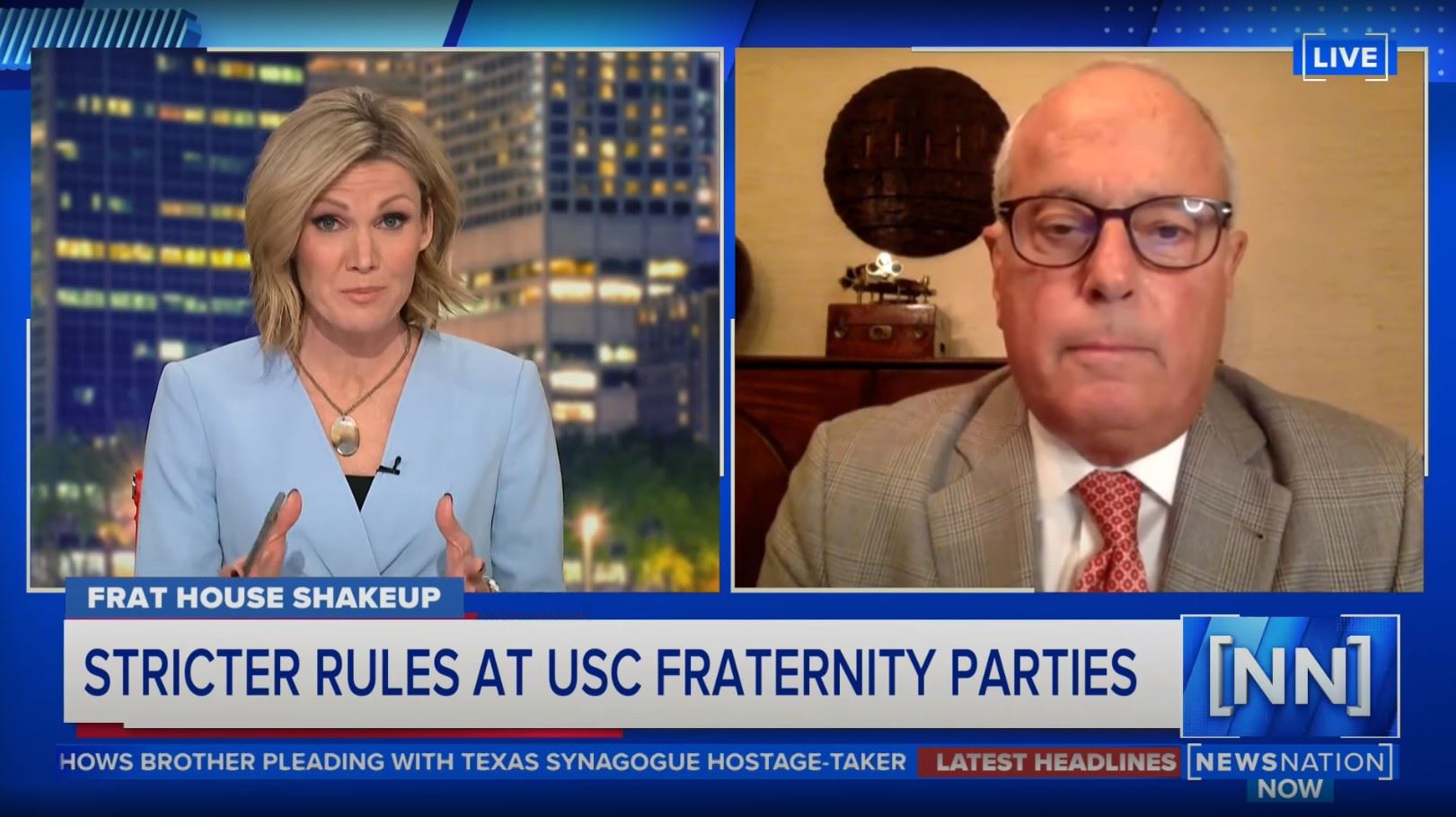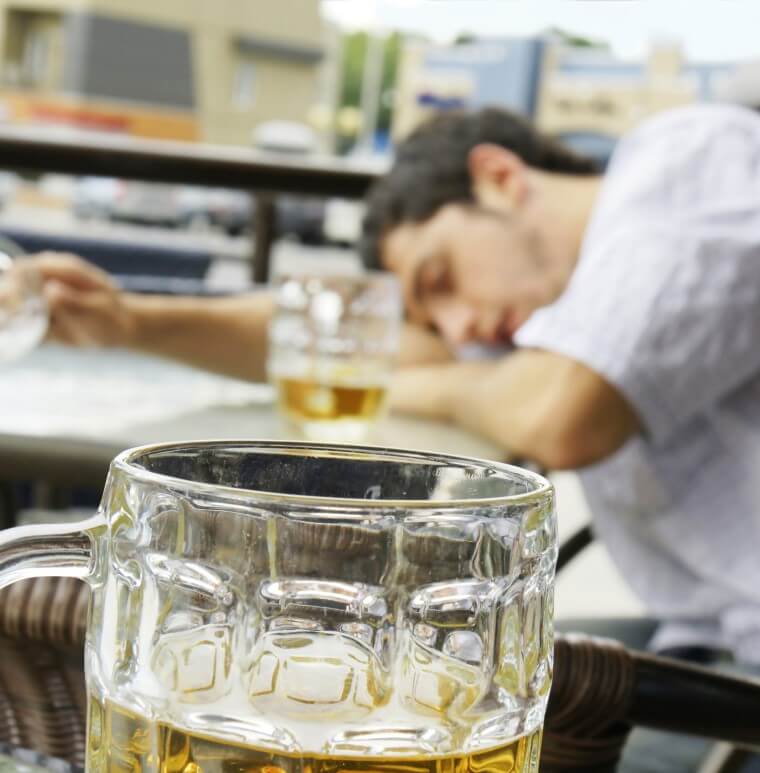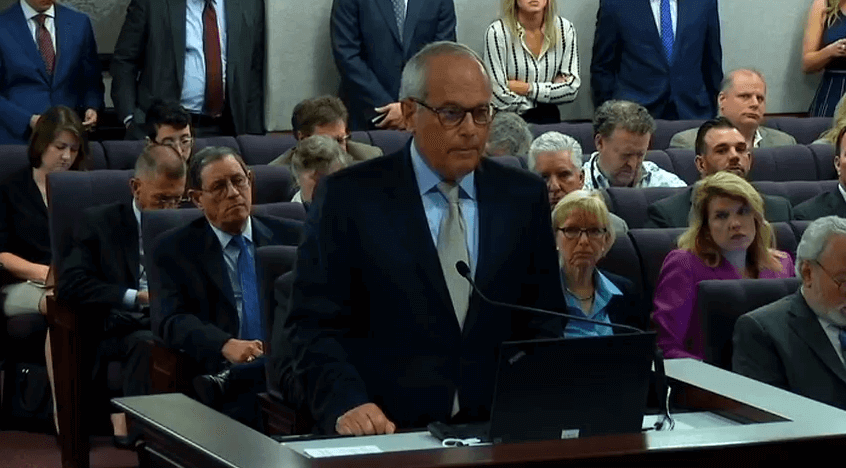



Featured Nationwide In the News
-

 “A national leader in hazing litigation with over 40 years experience.” - Miami Herald
“A national leader in hazing litigation with over 40 years experience.” - Miami Herald -

 “A national hazing expert.” - NBC NewsCenter Maine
“A national hazing expert.” - NBC NewsCenter Maine -

 “America’s leading hazing lawyer” - Crime Stories with Nancy Grace
“America’s leading hazing lawyer” - Crime Stories with Nancy Grace -

 "One of the nation's most successful lawyers in fraternity hazing cases." - NewsNation
"One of the nation's most successful lawyers in fraternity hazing cases." - NewsNation -

 "A renowned hazing attorney" - Fox News
"A renowned hazing attorney" - Fox News
Hazing Injury & Death Attorneys
We've Been Handling Hazing Cases for Decades
For too long, hazing has been excused by claiming it is a centuries-old tradition within collegiate or athletic life. But harmful traditions need to be left in the past. What is all too often brushed off as "good fun" can lead to catastrophic consequences: severe duress, injuries, and even death.
At Stewart Tilghman Fox Bianchi & Cain, P.A., our hazing injury and death attorneys have been representing the families and victims of hazing for decades.
Throughout our time working on hazing cases, our legal team has been described as a "national leader in hazing litigation with over 40 years experience” by The Miami Herald and a ”national leader in hazing litigation" by the Daily Business Review. NewsNation said "David Bianchi is recognized as one of the nation's most successful lawyers in fraternity hazing cases." Crime Stories with Nancy Grace also introduced as “the nation’s leading hazing lawyer.”
We've worked with families across the nation who have suffered because of hazing, and we have long been leading the effort to stop it. From obtaining the largest fraternity hazing verdict in the U.S. to authoring multiple new laws toughening the criminal penalties for hazing to neutralizing defenses that offenders typically raise in hazing cases, we work tirelessly to advocate for those affected by hazing—and will continue to do so. As our clients will attest, we give victims a voice and have a long track record of obtaining significant recoveries for hazing victims and their families.
We have consistently obtained extraordinary hazing results for our clients year after year in state after state. If you would like to learn more, we can arrange for you to speak directly to our previous clients. Just call today at (305) 770-6335 to ask!

-
"My family and I are eternally grateful to have had the expertise of the team"
- Elizabeth L. -
"I would recommend this firm without hesitation because they are certainly the best."
- K.N. -
"Many thanks for your faith in our case and your persistence and dedication to representing us."
- Anonymous
The Tragic Death-by-Hazing of Chad Meredith
Our firm's hazing work began in 2001 when David Bianchi represented the parents of Chad Meredith, an 18-year-old student and high school baseball star enrolled at the University of Miami. Shortly after Chad began attending UM, he became a pledge for Kappa Sigma Fraternity. He was in the company of the fraternity president and vice-president when he began to drink excessively at the chapter house. His blood alcohol level was later discovered to be nearly two times the legal limit.
Despite the excessive drinking, the president and vice-president urged Chad to follow them into a dark and cold campus lake at 4 AM, knowing that the university had a rule that prohibited swimming in the lake.
Chad had never liked to swim, and he especially hated swimming in water where he could not see the bottom. Nevertheless, he wanted to be accepted by the fraternity, so he reluctantly followed the “brothers” into the lake.
However, after making it halfway across, he had a panic attack, struggled to stay afloat, and started screaming for help. The fraternity vice-president heard his cries and swam over to check on him. He saw Chad desperately flailing his arms and struggling, but he neglected to help him. Instead, he swam away knowing Chad would likely drown if he did not assist.
This so-called “brother” callously abandoned Chad in his moment of greatest need.
Hours later, police divers pulled Chad’s body from the bottom of the lake. He drowned in just 6’9” of water.
Chad's parents retained our firm to hold the fraternity officers accountable for their son’s death. In 2004, we tried the case before a Miami jury. We asserted that Chad’s death was directly caused by negligence, a breach of fiduciary duty, and a breach of duty to aid and/or rescue. At the conclusion of the one-week trial, the jury awarded $14 million to Mr. and Mrs. Meredith.
This remains the largest fraternity hazing verdict in the country.
The Signing of the Chad Meredith Act
After the verdict, the Meredith family wanted to use the tragic circumstances of their son’s death as an opportunity to put a stop to hazing. Once again, they turned to our firm for help.
When we learned that Rep. Adam Hasner (R. Delray) was drafting legislation that would make hazing resulting in death or severe injury a third-degree felony, David Bianchi offered to assist. He partnered with Rep. Hasner to toughen Florida law in this area. During our case, the defendants' lawyers argued their clients could not be held liable for Chad’s death because Chad had agreed to swim in the lake. They argued that the swimming was not an event sponsored by the fraternity, and they argued that swimming the lake that night was not a condition of membership for joining the fraternity.
While the jury ultimately rejected all these defenses, we knew that future cases would raise similar arguments.
In working on that legislation, one of David’s objectives was to take away those defenses from future hazing defendants. In the end, the legislation that David co-authored was signed into law by Governor Bush at the University of Miami where Chad died, and all of David’s provisions to take away the defenses raised in the Meredith case were included in the new law.
David Bianchi Interviewed After UVA Kappa Sigma Hazing
As a recognized authority on hazing law—in the legislature and courtroom—David Bianchi was asked to speak to CBS 19 News about the 2024 hazing at Kappa Sigma on the University of Virginia campus. Kappa Sigma is a one-time legal adversary of Bianchi’s, as he’s the one who brought the civil case against the fraternity for causing the hazing death of Chad Meredith.
Bianchi was also invited to speak to WVIR 29 News about what it would take to prevent Kappa Sigma and other fraternities from hurting more students. He highlighted the importance of laws like Andrew’s Law in Florida, which offers immunity from hazing prosecution in return for calling emergency responders after a hazing injury.
“If you’re a fraternity member or at the party and you see that someone’s in trouble because of hazing, and you’re the first one to call 911 and you stay on the scene to help fire and rescue when they arrive, then under the laws in about two dozen states, you will be immune from criminal prosecution under the hazing statute," Bianchi said. The story ends with a mention of our long-term goal: getting a law like Andrew’s Law passed in every state or at the federal level.
Michael Levine Consulted After Northwestern Hazing Scandal
In late 2022, a former player for the Northwestern University football team came forward with allegations of hazing abuse within the program. Among the allegations were disturbing reports of a recurring ritual called “running,” where players would hold down a freshman while 8–10 older members committed sexualized abuse.
According to Outsports, such rituals typically targeted players who’ve made mistakes at practice or during games.
The whistleblower’s allegations compelled the university to commission an independent investigation by former Illinois Inspector General Maggie Hickey. After months of combing through emails and interviewing dozens of individuals, investigators concluded the allegations were true: there was a disturbing culture of hazing within the Northwestern football program. This explosive revelation prompted national media outlets to consult Michael Levine from our firm as an authority on hazing litigation. Michael was asked to appear on WGN Chicago, NBC, and ESPN SportsCenter.
Michael has represented victims of hazing in Florida, New York, and Missouri.

David Bianchi on Prime News
Referred to as "Country's Leading Hazing Lawyer"
Ever since the Chad Meredith case, David Bianchi (now joined by Michael Levine) has committed himself to bringing public and legal accountability whenever fraternities harm students in the name of 'tradition.' After 20 years, he's earned a reputation as one of the nation's leading authorities on hazing litigation.
In 2021, Prime News interviewed David for a story on changes to the anti-hazing policy at the University of Southern California and introduced him as “one of the nation’s leading hazing lawyers.” In the interview, David was asked what it would take to get rid of hazing practices and whether Greek life should be abolished.
David responded with a clear solution in the Prime News interview:
“Universities need to adopt a policy that should any pledge be seriously hurt or die because of a hazing event, every chapter officer will be immediately expelled from the university, regardless of whether they were present when the hazing took place. The officers are in the best position to stop hazing before it happens, and if they can’t or won’t do it and it happens on their watch, they are out; expelled—no questions asked. This tough policy is necessary since nothing else is working.”

Andrew Coffey Case
David has gone on record to insist that immediate expulsion is the way forward for college administrations seeking to end hazing. Why? Because we won’t end hazing with more seminars or more rules and regulations. We have tried that. Fraternity members must believe that there will be severe and immediate consequences for any hazing violation causing serious injury or death.
The need for such action was made clear in the Andrew Coffey case.
Freshman Andrew Coffey died from acute alcohol poisoning because of a hazing tradition called “Big Brother Night” at Pi Kappa Phi at Florida State University in November 2017. Per the tradition, Andrew was given the “family bottle” of Wild Turkey and expected to drink it all.
After doing what he was told, he collapsed on a couch in the Phi Kappa Pi house, and no one called 911 or attempted to help him in any way. At 7 AM the next morning, someone found him still on the couch, but he had died, all alone, sometime in the night. As his mother so poignantly described,
“Our son died in a room full of people, and no one helped him.”
Andrew’s death could have been prevented but is instead another horrible example of what the dangerous, illegal, and unsafe fraternity traditions can do to young men by exploiting their desire to make friends. Nine fraternity members were criminally prosecuted for their role in Andrew Coffey’s death under the Chad Meredith Act, and they all went to jail.
There have been 70 fraternity deaths in the U.S. since 2000. There is no end in sight.

Andrew's Law
Following his resolution of the Andrew Coffey case, David went back to work to improve Florida’s “Chad Meredith Act” based on what he had learned from his most recent hazing cases. Feeling strongly that Andrew Coffey would be alive today if just one of the so-called fraternity “brothers” had called 911 sooner, David and Michael Levine from our firm wrote an amendment to the existing law to encourage fraternity members to call for help when a hazing victim is in trouble. After the amendment was written, legislative sponsors were recruited and in 2019, David and Tom and Sandy Coffey testified before the Florida legislature in support of the changes.
As David testified, “we need to make our good law even better.” He then explained the proposed amendments to the Chad Meredith Act that he had drafted years earlier. David's expertise on this subject and the courageous testimony of Andrew’s parents convinced the legislature that these amendments offered necessary improvements to the existing law. The amendments subsequently passed both the Florida House and the Florida Senate without a single “no” vote and were subsequently signed into law by Governor DeSantis. They are officially known as “Andrew’s Law.”
To learn more about David Bianchi's work to toughen anti-hazing laws, click here.

The Future of Anti-Hazing Legislation
Andrew's Law attempts to break through the culture of secrecy that permeates these organizations, making investigating and prosecuting hazing so difficult. This law encourages those who are aware of what happened to call for help.
The new law was partially inspired by the plight of Nicholas Mauricio, an FSU student who suffered a permanent brain injury because of a fraternity tradition called “scumbag of the week” less than a year after Andrew's death. After being knocked to the floor at a chapter meeting and striking his head on the hard tile, Nicholas was taken to the hospital where his brain injury was diagnosed. Criminal charges were filed in that case for violations of provisions of the “Chad Meredith Act.”
David Bianchi and Michael Levine worked together to represent Nicholas Mauricio and to make a recovery for him for the serious injuries he sustained that will impact him for the rest of his life. As part of Tom and Sandra Coffey's efforts to try and prevent Andrew's tragedy from repeating itself in the future, they created an informational anti-hazing pamphlet to help students identify the red flags of hazing behavior. Efforts like theirs will hopefully one day eliminate the scourge of hazing.


Daniel Santulli & Andrew Coffey: Parallel Tragedies
After decades of representing hazing victims and their families throughout the United States, we often see very similar traditions repeat themselves with similarly tragic consequences.
Daniel Santulli's story illustrates that.
In October 2021, University of Missouri freshman Daniel Santulli was subjected to “Pledge Dad Reveal Night” which was nearly identical to the “Big Brother Night” that Andrew Coffey attended at Florida State; two different fraternities in two different states with the very same tradition.
Danny and Andrew were both given the so-called "family bottle" of alcohol.
For Andrew, it was Wild Turkey.
For Danny, it was Tito’s vodka.
Each was pressured into drinking the entire thing.
Danny, who was already sleep-deprived and depressed from enduring a month of pledge-related humiliations, tried to stop but was pressured into drinking it all. In both cases, Andrew and Danny were found unresponsive on a couch in their chapter houses; in both cases, none of their ‘brothers’ called 911. Andrew was left alone until the next morning where he was found deceased. Danny was eventually driven to the local hospital in a fraternity member’s car.
In Danny's case, when they arrived, the ER staff realized that he was not breathing and was in cardiac arrest. CPR was immediately administered while he was still in the car. By the time Danny's heart was restarted, his brain had been deprived of oxygen for so long that he had suffered significant, irreversible brain damage. Though he eventually was able to breathe on his own, he was rendered blind and unable to communicate. He will require 24-hour care for the rest of his life.
David Bianchi and Michael Levine represented Danny in a lawsuit we filed against 23 defendants, all of whom are responsible for what happened to him. We did not rest until the fraternity officers and members responsible for Daniel's injuries were held accountable under civil law, which took several months.
In Andrew Coffey’s case, nine fraternity members went to jail for what they did. In Danny’s case, 11 defendants received hazing charges; as of January 2024, six of them took plea deals and five await trial. Danny’s case underscores the need for all states to adopt “Andrew’s Law” so that fraternity members are incentivized to call 911 before irreparable damage is done to yet another hazing victim.



David Bianchi Appears on Dr. Phil
Discussing a Disturbing Hazing Trend
On September 20, 2022, David Bianchi featured on the Dr. Phil show alongside the family of Daniel Santulli. The discussion focused on the critical issue of hazing, exploring strategies for its prevention and addressing the future of fraternities embroiled in hazing controversies. During the show, David highlighted a concerning trend: fraternities attempting to sidestep responsibility for their hazardous traditions and practices. This segment aimed to shed light on the severity of hazing and the importance of holding such organizations accountable for their actions.


Hundreds of Millions Won
We have a reputation for getting results. Our personal injury law firm has successfully gone toe-to-toe against the largest companies in the country and has been able to recover maximum financial compensation for our clients. As a result of our success, diligence, and experience, our trial attorneys have been recognized and awarded by numerous organizations throughout the nation. We have consistently obtained extraordinary results for our clients year after year in state after state. If you would like, we can arrange for you to speak directly to our previous clients.
-
$650 MILLION
RICO
-
$17.3 MILLION
Wrongful Death
-
$16.5 MILLION
Brain Injury
-
$15.5 MILLION
RICO
-
$15 MILLION
Birth Injury
-
$15 MILLION
Truck Accident
-
$15 MILLION
Medical Malpractice
-
$15 MILLION
Liquor Liability
-
$14.5 MILLION
Pedestrian Accident
-
$14 MILLION
Hazing
-
$13.5 MILLION
Birth Injury
-
$12 MILLION
Defective Product
-
$12 MILLION
Wrongful Death
-
$11 MILLION
Birth Injury
-
$11 MILLION
Personal Injury
-
$10.5 MILLION
RICO
-
$10 MILLION
Medical Malpractice
-
$10 MILLION
RICO
-
$10 MILLION
Medical Malpractice
-
$8 MILLION
Cruise Ship Injury
-
$8 MILLION
Truck Accident
-
$8 MILLION
Negligent Security
-
$8 MILLION
Medical Malpractice
-
$7.5 MILLION
Sexual Assault
-
$7 MILLION
Defective Product







